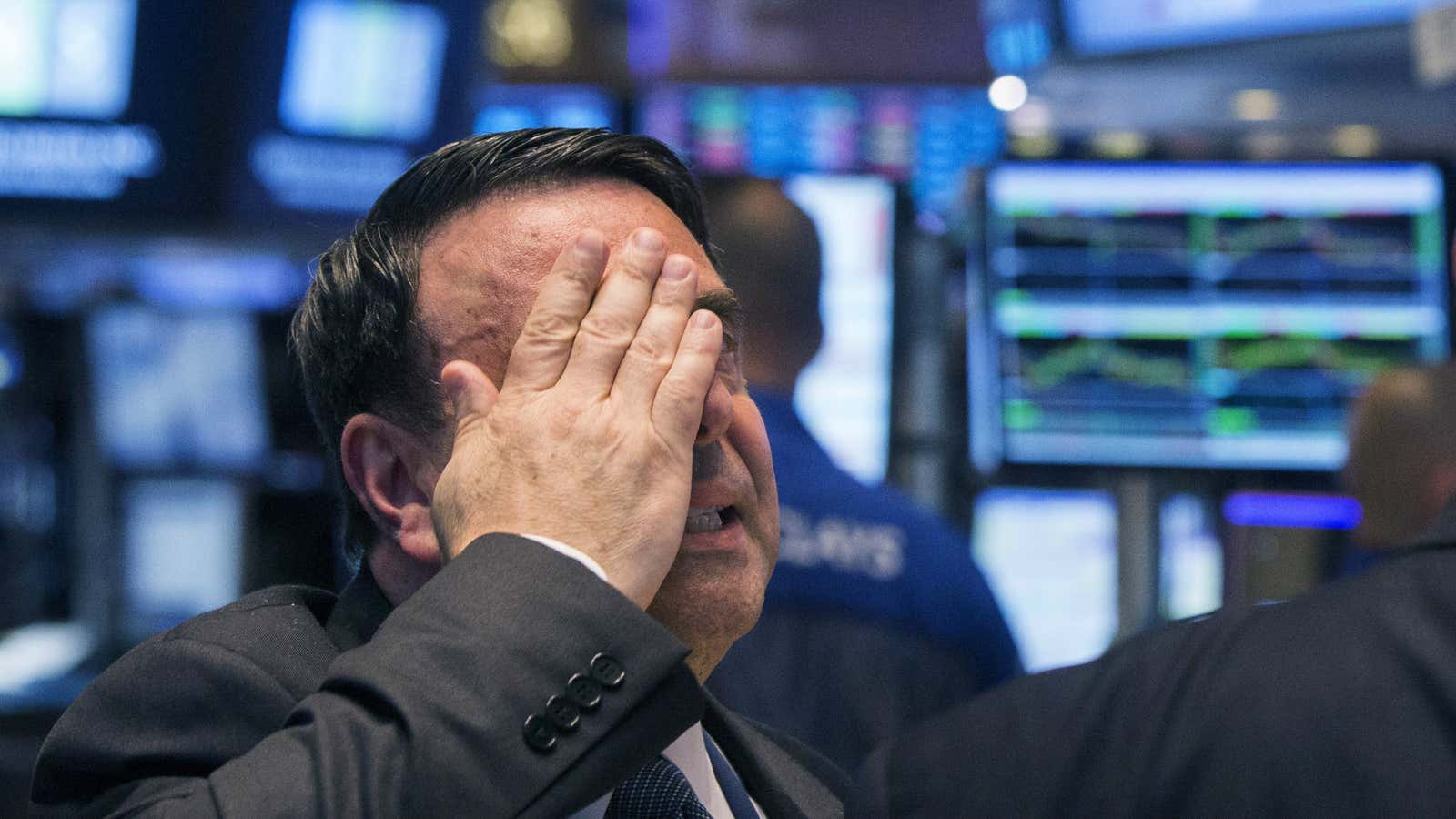For any Brits scanning the financial headlines late at night, they got a short, sharp shock a few minutes past midnight local time. The pound briefly plunged 6% against the dollar—a huge move in that market—at the start of Asian trading hours, before snapping back upwards a few minutes later.
Sterling fell as low as $1.18, from $1.26, setting a new 31-year low intraday, according to Bloomberg data. (Other data platforms show a drop to just above $1.20, which still counts as a “flash crash.”) The currency has recovered most of its losses, but was trading down by 1.4% on the day, at $1.24, at the time of writing.
A flash crash is a rare sight, particularly in a market as deep and liquid as the dollar-pound currency pair—nearly $500 billion is traded in this market every day. The causes are unclear.
Traders are blaming algorithms for this crash, according to Bloomberg. It may have started with a person inputting an incorrect trade, known as a “fat finger” error, triggering a cascade of algorithmic trading that jolted markets amid thin volumes during off-hours. Algorithmic trading uses fast computers and complex mathematical models to execute high-speed transactions with minimal human intervention.
The pound has been under significant pressure since the UK voted to leave the European Union on June 23. Sterling is 17% weaker against the dollar since the referendum. It has tumbled by more than 4% this week—excluding today’s flash crash—as traders worry the UK is heading for a “hard Brexit,” with the UK losing tariff-free trading access to EU markets and imposing strict controls on immigration with its former EU partners.
British prime minister Theresa May’s insistence on not giving a “running commentary” of Brexit negotiations means that anxious traders are making decisions on rumors and other scraps of news, with little clarity or official guidance on the government’s plans for its post-Brexit trading relationships. (“Our policy is having our cake and eating it,” says foreign secretary Boris Johnson, unhelpfully.) And now, it seems even the computers are confused.




